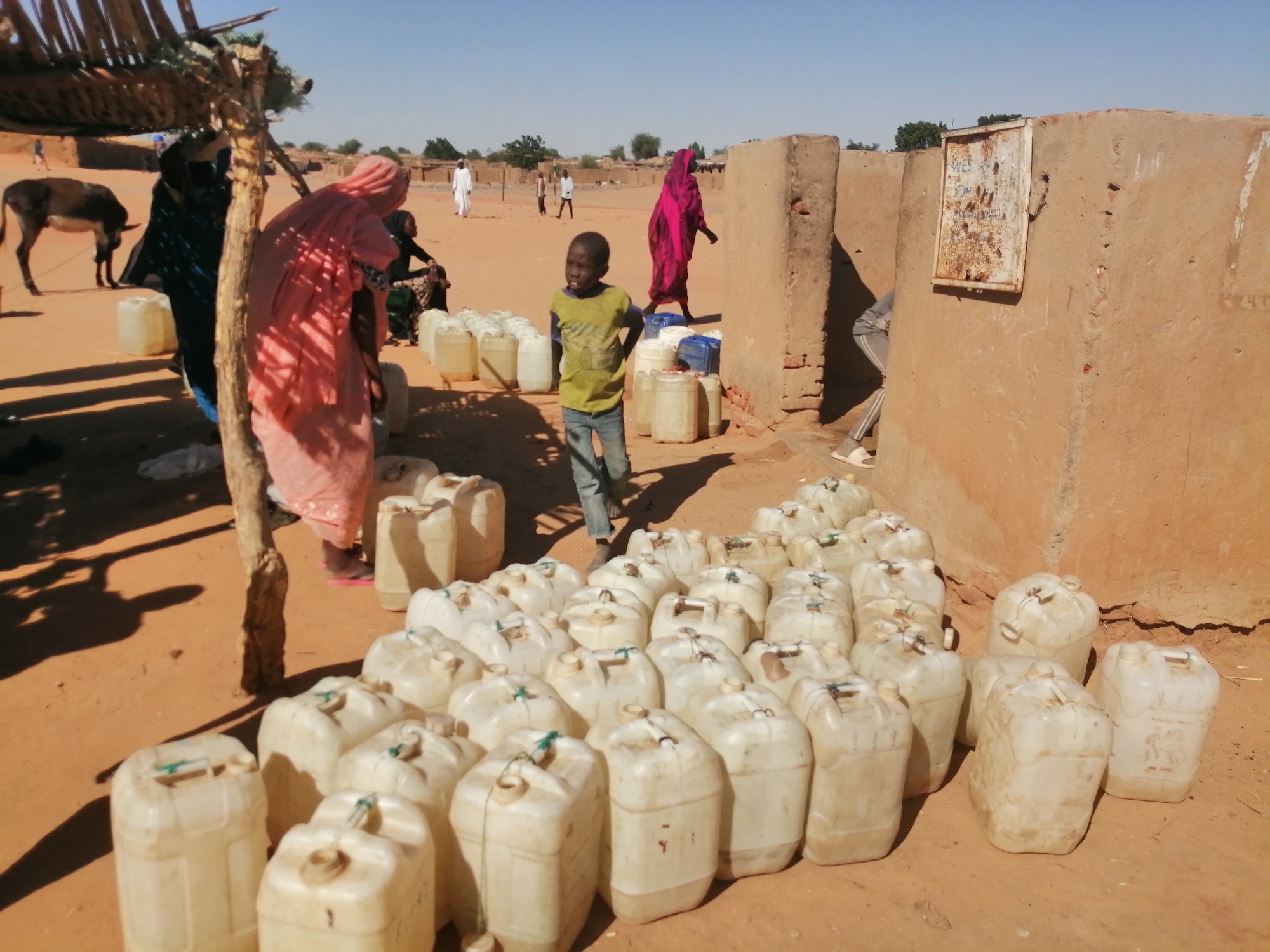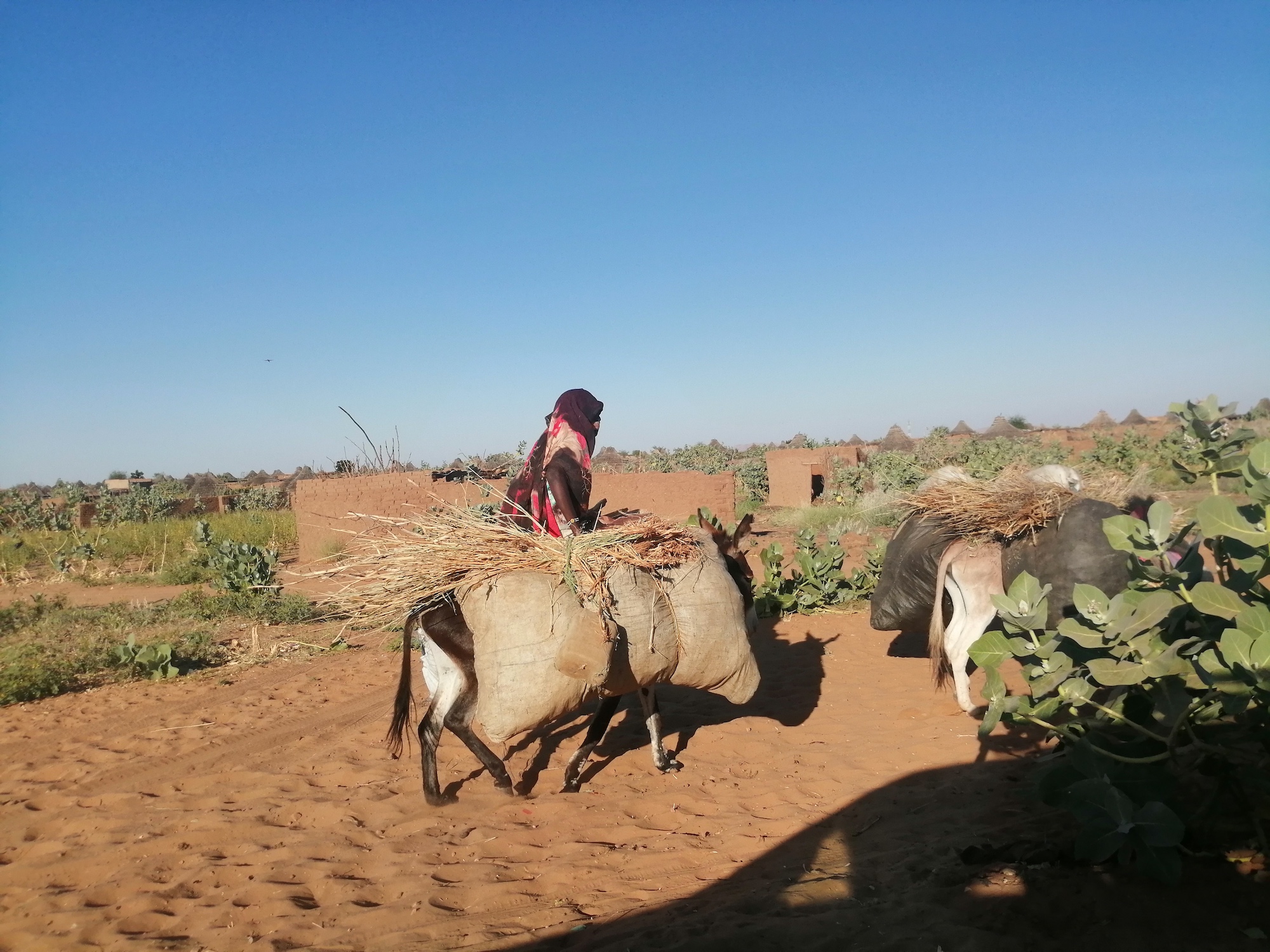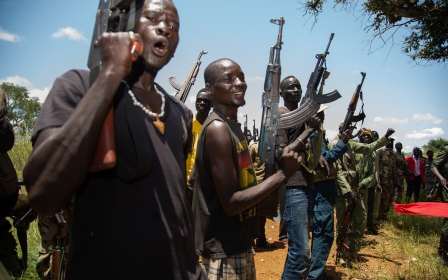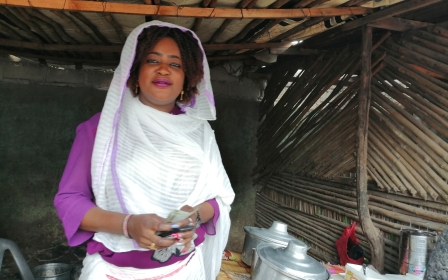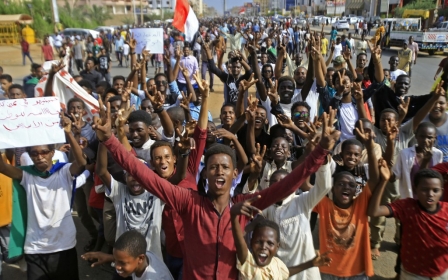For Darfur's displaced, the promise of a new Sudan is distant
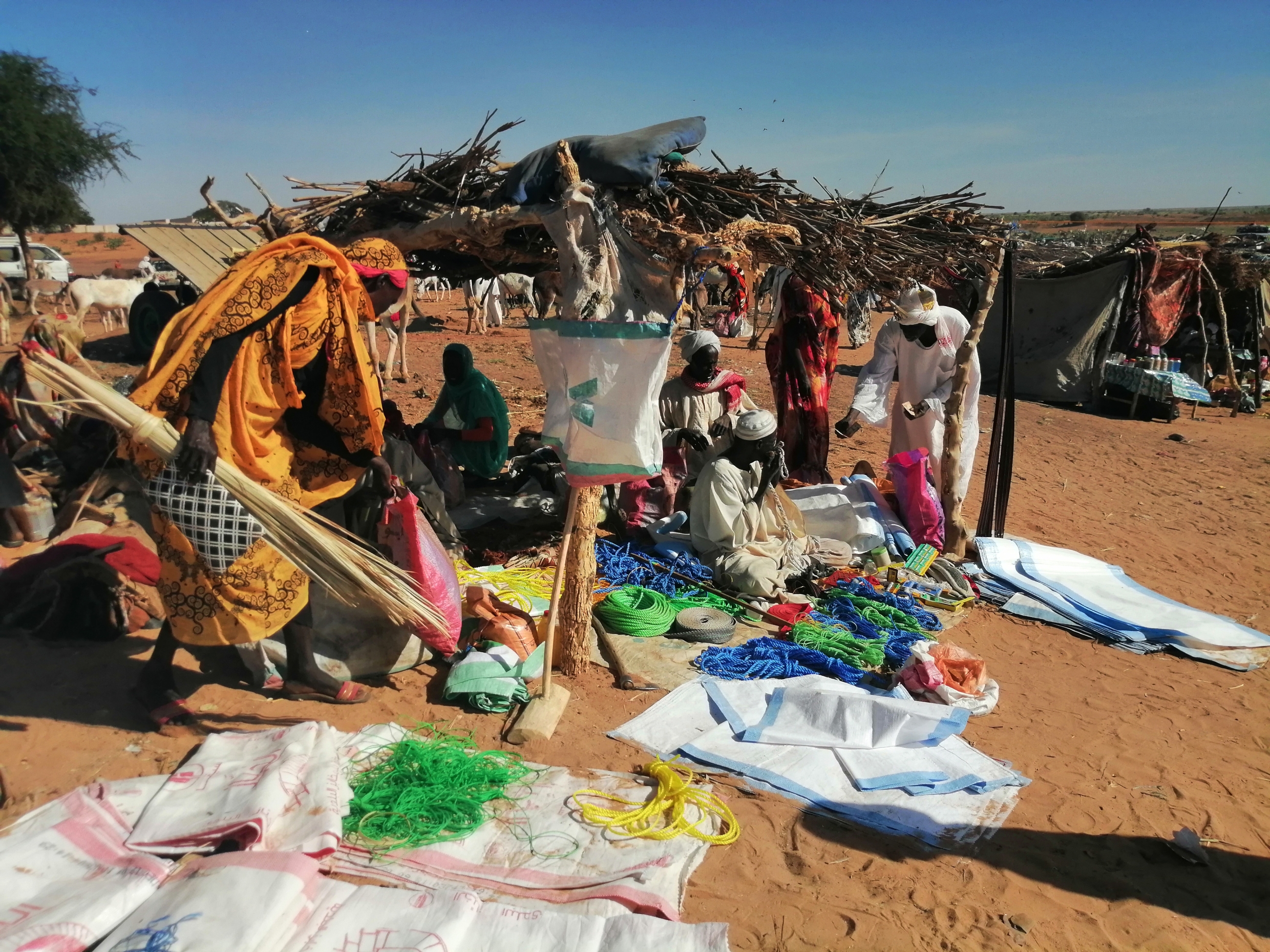
As far as Umm al-Nour knows, deposed Sudanese president Omar al-Bashir's 30-year rule of Sudan continues.
Without a television or radio, the news that the man whose wars had forced her into a life of displacement is now in prison had not reached her; nor had the name of the country's new civilian prime minister, Abdalla Hamdok, who has appeared on international stages and even visited Zamzam camp, where Umm al-Nour lives in North Darfur.
"We don't have TVs or radio or any means of communication with the world. We just want the government in Khartoum to help us make our lives better," Umm al-Nour, who is in her 60s, told Middle East Eye.
But for her and many others in Darfur - even those who did follow the protests that ended Bashir's three-decade rule - little has changed to suggest a new Sudan is being built.
There might be a civilian cabinet in Khartoum, but Darfur's displaced say their lives are still being controlled by the system Bashir created. People are still battling hunger and diseases, and they also live in fear of violence by rival communities that the deposed dictator had armed.
New MEE newsletter: Jerusalem Dispatch
Sign up to get the latest insights and analysis on Israel-Palestine, alongside Turkey Unpacked and other MEE newsletters
Hunger and disease
Not long after the civilian cabinet was formed in September, the product of months of negotiations aimed at wresting at least some powers from the military council that replaced Bashir, it ordered the open passage of humanitarian aid to Sudan's various conflict areas.
But no change has been seen by the residents of the Darfuri camps founded when Bashir's army and militias raided their villages from 2003 onwards, a campaign the UN says killed at least 300,000 people and that many believe was a genocide.
Just last week, people protested in Darfur's northern camps against a decrease of rations provided by the World Food Programme (WFP) and other aid organisations.
Zamzam camp resident Adam Adai told MEE that they submitted a petition to WFP requesting that food rations be increased. Another was sent to the Sudanese authorities, calling for the return of the international aid organisations that were expelled when the International Criminal Court (ICC) investigating Bashir for genocide issued an arrest warrant against the ousted president.
The United States Agency for International Development (USAID) estimated in October that more than six million people - half of them in Darfur - are facing food shortages in the western region and could soon be struggling with famine.
Darfuris displaced in the Jebel Marra area, where fighting between rebels and the government has continued into this year, also confirmed they have not seen new aid organisations in their area.
"We expected to see new aid organisations in the area and increased food assistance after we heard that Khartoum has lifted the restrictions on the movement of the organisations, but nothing has happened so far, and the displaced people are still suffering here," said Ali Bilal, a Darfuri displaced in Jebel Marra's Nertiti area.
Disease is also prevalent. According to the United Nations, there were thousands of cases of mosquito or water-borne diseases, including cholera and dengue fever, reported across Sudan in November alone, and displaced Darfuris say they are particularly vulnerable.
"The local authorities are still imposing the same policies of the old regime and don't like to admit that diseases are at epidemic levels so the international organisations can intervene and help the people," said Adam Osman, a spokesman for the camp residents in North Darfur.
The conflict continues
Bashir's response to rebel movements among Darfur's indigenous communities was to fight not only the rebels but the communities themselves, which, like others in Sudan, felt marginalised by a system focused on the power of a Khartoum elite that identifies as Arab.
Bashir not only relied on the Sudanese army but also on members of nomadic Arab tribes whose pastoralist livelihoods had increasingly come into conflict with the agricultural practices of Darfur's indigenous communities. He armed them well enough to form the militias that became notoriously known as the Janjaweed.
Bashir incorporated the Janjaweed into the Rapid Support Forces (RSF) in 2013. The paramilitary is often accused of backing raids by pastoralists, which Darfuri farmers, many of whom are displaced but still travel to work their lands, say is aimed at land-grabbing.
"The attacks of the herders, mainly Arabs, are on the increase, including killing and land-grabbing," said Osman.
"The new settlers are getting the support of the RSF, which is actually protected by the power given to them through the agreement between the civilians and military that was signed last August," he said suggesting the influence of RSF leader Mohamed Hamdan Dagolo, known as Hemeti, was formalised by the power-sharing agreement that made him part of a ruling sovereign council.
There have been dozens of reports of violence by armed herders against farmers this year, especially in North Darfur state, where thousands of farmers recently marched to the capital El-Fasher to protest.
Abdallah Adam, from North Darfur's Shangli Tobai area, told MEE a relative of his was killed by armed herders.
"A group of three herders riding camels entered the farmland of my cousin Abdul Bagi and destroyed the crops," he said.
"A clash broke out between them, and when he tried to expel them from the land, one of them shot him dead."
The violence has also had a particular effect on young girls and women, with a number of reported rapes and kidnappings by herders.
In 2018, UNAMID, the Darfur peacekeeping operation jointly run by the UN and the African Union, documented 122 incidents of sexual violence involving 199 victims: 85 women, 105 girls and nine boys in Central, South, North and West Darfur states.
Osman told MEE that at least 12 rape cases have been registered in North Darfur in recent months.
Halima Ishag, an activist from the Kalma camp in South Darfur, said sexual violence is widely used by government militias to intimidate local communities.
"We are constantly seeing cases of women being raped around the camp when they go to collect firewood or water," she told MEE.
Making justice a reality
It was hailed as a breakthrough moment when Hamdok travelled to Darfur in November, declaring to the displaced residents of Zamzam that he was there to hear their demands. He even suggested that Bashir should be handed to over to the ICC.
But the council's head, General Abdel Fattah al-Burhan, responded by maintaining the military's line that Bashir will not be handed over.
Though Bashir is currently imprisoned and facing charges for corruption and killing protesters, the accusations of genocide have not been addressed, which is precisely what Darfuris have been demanding. During the months-long protests in Khartoum, convoys travelled from Darfur to the capital to demand justice.
Sulema Sharif, who heads the Ahfad Trauma Centre, said the government will have to build trust with Darfur's traumatised communities.
"The crime of rape, for example, is the most unforgettable for the victims and needs to be addressed seriously," she said.
"It's very essential for the recovery of rape victims to see change from their personal perspective and experience. They definitely need to see justice become a reality."
According to political analyst Salah Aldoma, many in Darfur view Khartoum as the city that sent planes to bombard them and armed the militias who rampaged through their villages, so building trust will be difficult.
"It's noticeable that the displaced people are standing by their demand for Bashir to be handed over the ICC," he said. "That is simply because they do not trust Sudan’s judiciary."
Middle East Eye delivers independent and unrivalled coverage and analysis of the Middle East, North Africa and beyond. To learn more about republishing this content and the associated fees, please fill out this form. More about MEE can be found here.


